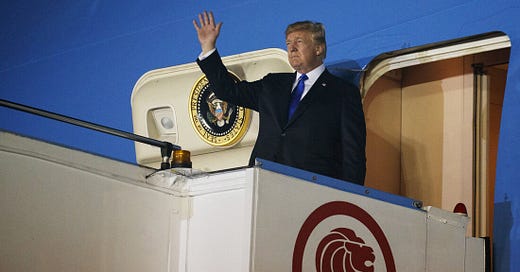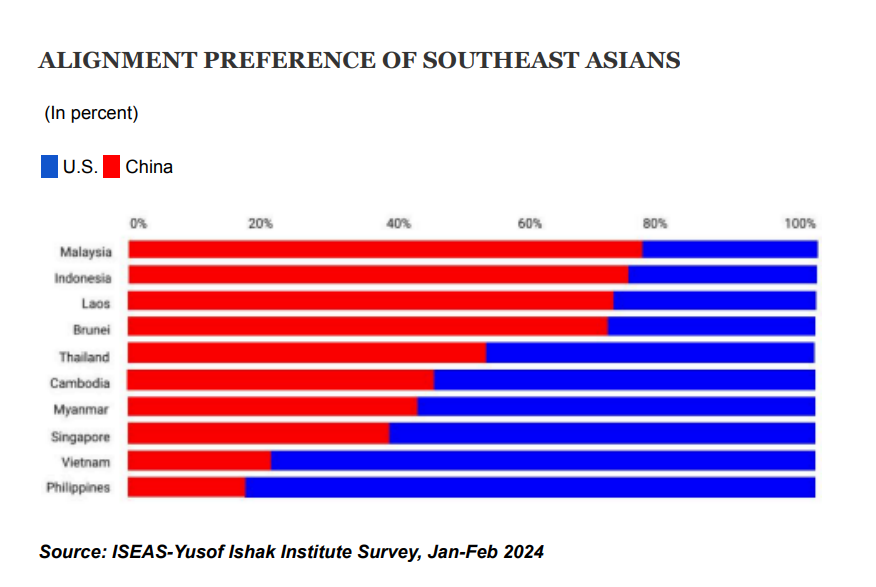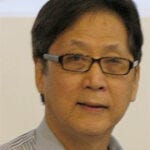Guest Editorial: Why Southeast Asia Will Stand Up To Trump
As Trump Returns to Power, Allies and Adversaries Expect a Wave of Revenge
By Lim Teck Ghee
https://www.nytimes.com/2024/11/10/us/politics/trump-enemies-prosecution.html
Donald Trump's presidential victory has generated a frenzy of commentary on global geopolitics and geoeconomics unlike any previous election. For a start, leaders critical or contemptuous of Trump have had not only to swallow their pride. Many have now publicly retracted their earlier opinions and started to eat crow.
Possibly the most striking example is Australia’s former Prime Minister, Kevin Rudd, currently Australia’s Ambassador to the United States. In 2020, Rudd condemned Trump as the “most destructive president in history” while in 2022 he denounced Trump as a “traitor to the West” for praising Russian President Vladimir Putin.
Immediately after Trump’s victory, Rudd purged his personal and social media accounts of his anti-Trump posts - an action which Peter Dutton, Australia’s opposition leader responded to by predicting that Rudd would follow up with further attempts to ingratiate himself with the new government.
“He’ll be down at the tie shop, he’d be buying up red ties, he’d be buying red hats, he’ll be ordering those MAGA hats. He will do everything he can to ingratiate himself with the Trump campaign. So he’s indefatigable, as we know.”
None of the leaders in the Association of Southeast Asian nations (ASEAN) are likely to engage in the brown nosing and submissive behaviour that we are seeing from allies of the US - including from the Asian Pacific region - in their efforts to apple-polish Trump and his incoming administration, and to curry favour.
What Southeast Asians Really Think of the US
Not only is there no need for ASEAN leaders to buy MAGA merchandise especially submarines and missile systems or to ingratiate themselves further with the new US president, there is every reason we can expect ASEAN member countries and leaders to uphold the organisation’s independent and non aligned principles in the tumultuous era that lies ahead.
An important marker for ASEAN’s foreign policy stance for the next four years has already been established by Prime Minister, Anwar Ibrahim. While congratulating Trump on his remarkable comeback victory, Anwar expressed the hope that Trump’s victory would bring positive changes in geopolitics, particularly to end the conflicts in Gaza and Ukraine.
"We will welcome any positive stance by the United States towards peace, particularly efforts to halt Israel's violent attacks on Gaza and to acknowledge the legitimate and inalienable rights of the Palestinian people."
This call by Malaysia as the incoming chair of ASEAN in 2025 for the new US administration to change its war-oriented ideological position pursued by the Biden administration, and presently playing out in respect to the wars in Gaza and Ukraine and elsewhere where earlier presidents have sought to reinforce American dominance, should not be regarded as unrealistic or futile.
Although criticised by western liberal media and think-tanks for his unpredictable ways and combustible foreign policy, Trump previously undertook an unprecedented peace initiative in dealing with North Korea and its leader Kim Jong Un.
During his recent campaign Trump repeatedly promised to bring an end to the war in Ukraine. It is equally possible that he will do the same in Gaza if there is strong and sustained pressure from his western allies and the rest of the world.
Standing up for ASEAN’s core principles means standing up for regional peace and security. This is a position which Trump, even if he disagrees with it, can and should be willing to live with. Despite his election rhetoric of making America great again, he is ultimately a businessman, a transaction wheeler dealer and realist with bigger concerns and issues to deal with in the United States, America, Europe, the Middle East and China. Draining the deep state and Capital Hill swamp may well take up most of his time and be his biggest challenge. ASEAN will be relatively low and unimportant in his agenda.
At the same time the reality for Trump’s hawkish foreign policy advisers is that ASEAN is a regional force that needs to be given due respect. With a larger population than North America’s, ASEAN is a middle level power in geopolitics but it is one of the world’s most diverse, fastest growing and competitive economic regions. The combined gross domestic product of US$3.8 trillion makes ASEAN the fifth largest economy in the world. During the period 2013-2022, ASEAN’s economy grew at an annual rate of 4.2% and is expected to grow just as or more strongly in the coming decade. Should Trump want a stronger counterweight to China, he will need ASEAN to be on his side.
The reality is also that should Trump want to restore the US to a more respectable standing in this part of the world, he has to begin with the recognition that many in ASEAN - possibly the great majority of the population - do not see the US as a role model for democracy, freedom, human rights and as a force for peace. This representation is regarded by most people - including Americans - as a hollow claim though ceaselessly propagandised by the western military-industrial-media complex.
The prevailing dark view of the US in Southeast Asia is well founded. It is not only because of the recent history of its military campaign in Vietnam which spilled over into Laos and Cambodia and killed more than a million of the Indochinese population. It is also due to the US’s war record in the Middle East and elsewhere and its support of the Israeli genocidal war in Gaza which has adversely affected Muslim as well as other non-western opinions of the US.
Alignment Preference of Southeast Asians
With regard to China which the Biden administration assessed as America's greatest geopolitical and geoeconomic rival, a recent survey of the ISEAS-Yusof Ishak Institute found that over half of Southeast Asians preferred alignment with China over the US. Its polling sample included respondents from the public and private sector, and researchers and academics who are in a position to influence policy.
If the poll numbers from the Philippines, the most pro-American among ASEAN nations because of its history and the large population of Filipinos with relatives in the US or dependent for their livelihood on US military bases in the Philippines, are discounted, the finding would be more lopsided in favour of China. Policy advisers of President Trump will do well to point out to him that more than 40% of the population of Southeast Asia is Muslim.
The way for Trump to make America better - great is in many ways a hopeless ambition - is to focus on dealing with the domestic issues that divide US society. It is not to engage in efforts to enforce the primacy of a nation whose preeminent standing in the world has been irretrievably lost. Trump’s exclusion of Nikki Haley and Mike Pompeo, well known war hawks, in his new administration is a hopeful sign that he may, against all expectations, help build a peace-oriented road for the US in its foreign policy to embellish his place in history.
Lim Teck Ghee
Lim Teck Ghee, ANU PhD graduate, is a Malaysian economic historian and policy analyst. He has a regular column, Another Take, in The Sun, a Malaysian daily and Oriental Daily; and is the author of Challenging the Status Quo in Malaysia, and Dark Forces Changing Malaysia (with Murray Hunter).
Subscribe Below:






An erudite scholarly description of the possibilities of what ASEAN could be like and how it could likely 'stand up' to the Trump administration (part II) if and when the need should arise.
Stand up to the Trump adminstration? They will not. Not now not in the foreseeable future. ASEAN failed to collectively stand up to the US led Regime Change juggernaut when Hillary Clinton and Obama attacked governments of South East Asia, Hong Kong and South Asia when the Regime Change juggernaut rolled over these nations collectively refered to as ASEAN.
ASEAN's troubles began when sychophants of the West readily swallowed up the anti China rhetoric that US in particular spewed their self righteous venom into the region through a well oiled machine of disruption consisting of social media supported by foreign educated and locally venerated social groups that they funded (like Bersih and the Malaysian Bar and 80 other so called NGO's).
Out of that ASEAN inherited the first wave of destabilization of the Asian miracle in 1967 in the Asian financial crisis. A destructive orgy of financial meddling by George Soros and other "free market" champions with their hands on the levers of the "fre market".
ASEAN still did not learn from that experience. It had neither the will no the leadership with the intellectual strength nor collective the political will to confront the USA. Too many ifferent ideologies too much self interest to defend.
Singapore and Hong Kong (under Tung Chee Hwa) sang panagyrics to Soros and the West whilst Dr. Mahathir called him out as the King with no new clothes. Dr. Mahathir's idea of market forces and those of the revilled Soros were at variance and diametrically opposed to each others.
Not long after Tung Chee Hwa had praised Soros, than Soros barassed attacked his currency. Not long after that we learned that the pristine white and incorrutible Singapore had lost tens of billions of dollars through Soros inspired investments, an attack on the Sing dollar, which prompted the late LKY and his son to blithely tell workers in Singapore whose pension funds had been squandered in Soros inspired investments "they'll simply have to work long and harder make up for thes losses". Suddenly the economic gospels of "fundamentals" did not appear to matter.
TIn truth, there was no breach of fundamentals on the part of ASEAN and the rest of a rising Asia. There was a breach of that so called unity and strength of ASEAN, a superficial entity that was created by the West for the West as a dumping ground for their high risk investments and services overseen by butchers (Suharto and the Marcos family, Hun Sen and the Thai military).
There is no unity in diversity in ASEAN. Too many self interested forces at work in what could otherwise be a force for good and a proper quilt instead of the patchwork of individual dictatorships pretending to be a unified force.
At present ASEAN's constituent components are largely ruled by despots posing as democrats, kings and statesmen, all with their hands in the till and an army at their disposal to waste dissidents.
When the one solitary opportunity to stand together and to show some spine arose in recent years, they all ran for cover. That was the setting up of DS Najib by forces within the Malaysian ruling elite, its justice system and its other institutions political and social, all corrupted one way or the other. Its was a planned coup by the US against a democratic government using local minions to achieve their goals. And there will never ever be a shortage of such trojans in ASEAN. Why?
The Asian way. There is no loyalty in ASEAN without money. It is "the Asian way" or rather the ASEAN way.